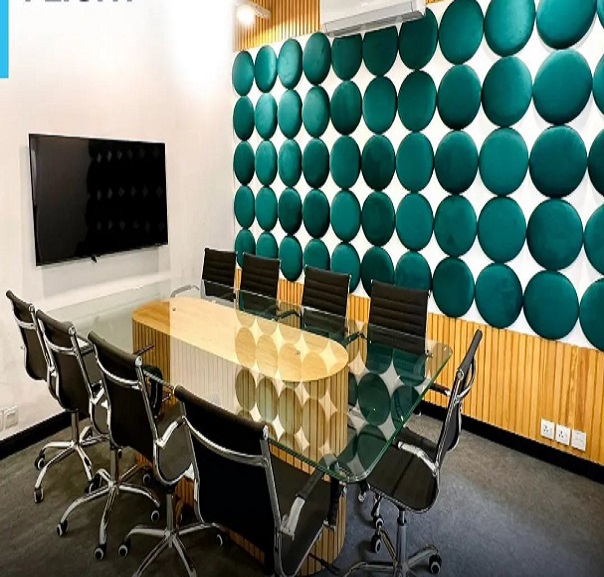Business Implications of the New Budget: What You Need to Know
The 2024-25 federal budget in Pakistan has introduced significant changes that will impact various sectors and businesses. On the other hand, the government has said that this budget will be a stepping stone towards economic stability and growth. A few of the measures have outlined concerns rising among business owners.
From the increase in taxation to the new compliance needs, this budget will have a far-reaching impact on businesses. In this blog post, we will dive into the key implications of the new budget that businesses need to be aware of, along with recent statistics and data.
Increased Taxes for Non Salaried Individuals and AOPS
One of the most significant changes in the 2024-25 budget is the rise in tax rates for nonsalaried individuals and Associations of Persons (AOPs). According to a report, the tax rate has been increased from about 35% to 45%, with professional firms controlled by law encountering a maximum tax rate of 40%. This move is expected to generate additional revenue, with the Federal Board of Revenue taxes envisaged at RS 12.97 trillion, approximately 40 percent higher than last year.
However, businesses operating in private workspaces must determine how this increased tax burden affects their profitability and operations.

Introduction of New Penalties for NonFilers
To encourage tax compliance, the budget introduces penalties for non filers, including restrictions on foreign travel, blocking mobile SIM connections, and discontinuing utility services. The primary purpose of these measures is to expand the tax base. Still, they could also create operational challenges for businesses, particularly those dependent on shared working spaces or coworking spaces near me. Staying compliant with the tax regulations is essential to avoid disruptions, especially the final fiscal deficit of Rs 7.283 trillion, which stands at 5.9 % of GDP.
Capital Gains Tax on Property Sales
The capital gains tax on the sale of properties gained after or on July 1, 2024, is set at 15% for filers. On the other hand, nonfilers encounter a variable tax rate ranging from 15% to 45%.
The main goal of this positive measure is to bring transparency to property transactions and encourage more individuals to file their tax returns. However, it could deter real estate investments, particularly in office near-me setups that are widely known among small businesses and startups. Real estate developers and investors must consider the long-term implications of this tax change on property sales and market stability, especially as the government achieved a target of a 3.6% economic growth rate 3.6 % for the fiscal year 2024-25.
Challenges for Salaried Individuals
The budget has brought changes that will impact salaried individuals. Increased indirect taxes and inflation projected at 12% for the year 2024-25 are expected to lessen disposable income, which could affect consumer spending. This, in turn, may affect the revenue of businesses, particularly those offering services such as coworking spaces near me. Companies must strategize to maintain customer loyalty and revenue growth in a more challenging economic environment.
Challenges for Businesses and Corporations
The budget depicts both problems and opportunities for businesses, especially exporters and large corporations. Additionally, high-income neglectful individuals and AOPs with earnings of more than Rs 500 million will encounter an effective tax rate of around 60 percent due to the introduction of super and additional taxes. Businesses must navigate these changes while considering challenges in sectors such as private workspaces, especially given the overall budget of Rs 18.9 trillion.
Employment and Wage Dynamics
The budget’s impact on employment and wages is another critical area of concern, and raised taxation on businesses may reduce investment in new projects that affect job creation. Thus, the proposed Rs 37,000 minimum wage, a 25 percent salary increase for grades 1 to 16 employees, and a 20 percent increase for grades 17 to 22 could boost the entire spending. Employers in coworking spaces must balance these changes while planning for future hire and salary adjustments.

Different sectors will encounter various degrees of impact from the 2024 to 2025 budget. The manufacturing sector, for example, will see changes with the imposition of an extra Federal Excise Duty (FED) of Rs 1,000 per ton on cement, bringing the total FED to Rs 3,000 per ton. This leads to higher construction costs impacting businesses and the real estate sector. Companies must analyze these sector-specific implications and develop strategies to mitigate the risks and capitalize on new opportunities.
Long-term Implications
The long-term success of the budget’s measures will rely on practical implementation and the government’s ability to maintain transparency and fairness. Businesses nowadays must stay proactive, continuously assessing the budget’s impact on their operations and making necessary adjustments. Whether moving to cost-effective private workspaces or discovering new markets, adaptability will be key to thriving in the post-budget business landscape.
Conclusion
The 2024-25 budget introduces significant changes that will impact businesses all over Pakistan. From the increased tax rates and new penalties for nonfilers to higher capital gains taxes and sector-specific changes, the budget presents both opportunities and challenges. Businesses must stay focused and adapt to the changing environment.

